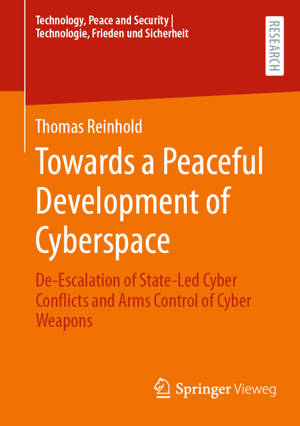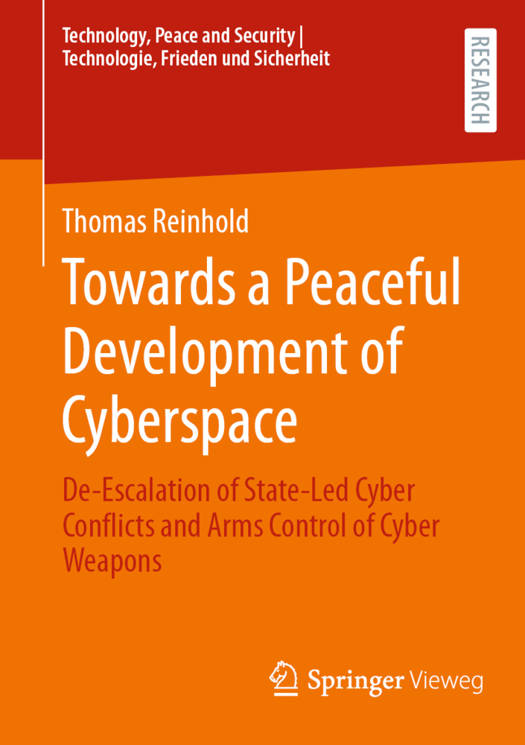
- Afhalen na 1 uur in een winkel met voorraad
- Gratis thuislevering in België vanaf € 30
- Ruim aanbod met 7 miljoen producten
- Afhalen na 1 uur in een winkel met voorraad
- Gratis thuislevering in België vanaf € 30
- Ruim aanbod met 7 miljoen producten
Zoeken
Towards a Peaceful Development of Cyberspace
De-Escalation of State-Led Cyber Conflicts and Arms Control of Cyber Weapons
Thomas Reinhold
€ 116,45
+ 232 punten
Omschrijving
The cyberspace and its global infrastructures are essential for our civilizations, the economy and administration. However, cyberspace is also increasingly developing into an intelligence and military operational area, visible in the creation of military cyber departments and the integration of cyberspace into states' security and defense strategies. Unfortunately, many of the established toolset of transparency, de-escalation and arms control measures do not work for cyberspace due to its specific technical characteristics. But how de-escalation of state-led conflicts in cyberspace can be achieved and how arms control of cyber weapons can be developed? Based on a technical perspective with regard to the underlying political challenges, the book follows an approach of adopting already existing technical measures from other fields of the computer science. It presents a classification system for cyberweapons, an approach for the mutual reduction of vulnerability stockpiles and provides an approach to prove the non-involvement in a cyber conflict. Beyond this, it aims to provide some impulses regarding the responsibility and creative options of the computer science with a view to the peaceful development and use of cyberspace.
Specificaties
Betrokkenen
- Auteur(s):
- Uitgeverij:
Inhoud
- Aantal bladzijden:
- 361
- Taal:
- Engels
- Reeks:
Eigenschappen
- Productcode (EAN):
- 9783658439507
- Verschijningsdatum:
- 2/04/2024
- Uitvoering:
- Paperback
- Formaat:
- Trade paperback (VS)
- Afmetingen:
- 148 mm x 210 mm
- Gewicht:
- 512 g

Alleen bij Standaard Boekhandel
+ 232 punten op je klantenkaart van Standaard Boekhandel
Beoordelingen
We publiceren alleen reviews die voldoen aan de voorwaarden voor reviews. Bekijk onze voorwaarden voor reviews.











